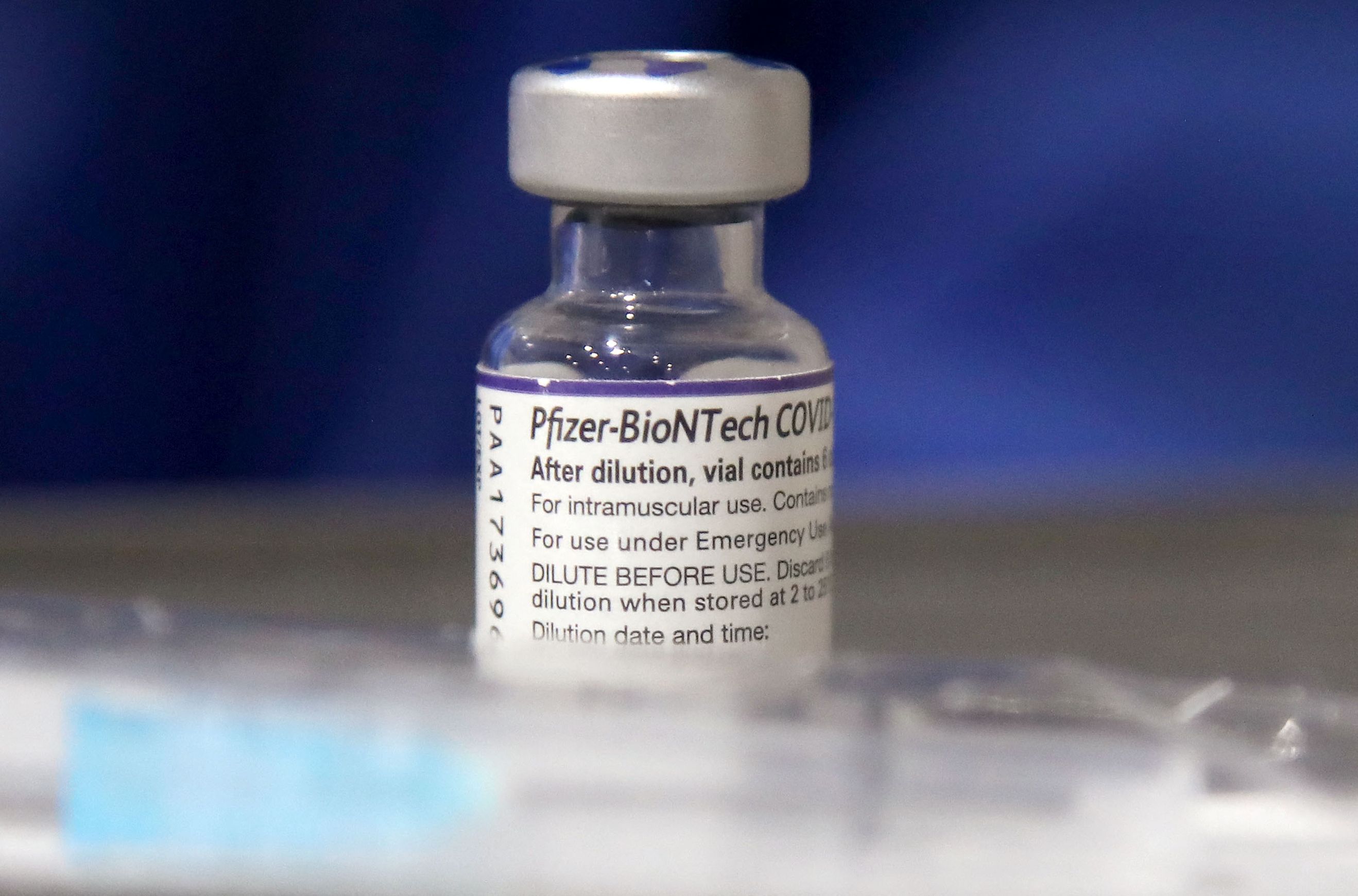Omicron's mutations impaired vaccine effectiveness, says US CDC
Sign up now: Get ST's newsletters delivered to your inbox

Immunity from vaccines starts to wane within six months, so staying up-to-date with shots is key to being fully protected.
PHOTO: AFP
WASHINGTON (BLOOMBERG) - Almost 40 per cent of people hospitalised in the United States with the Omicron Covid-19 subvariant that circulated this spring were vaccinated and boosted, highlighting how new strains have mutated to more readily escape the immunity offered by current shots.
The findings from scientists at the US Centres for Disease Control and Prevention (CDC) underscore the importance of having Covid-19 shots that are better at targeting Omicron subvariants.
From the end of March through May, when the Omicron BA.2 and BA.2.12.1 subvariants were dominant in the US, weekly hospitalisation rates increased for all adults - with those over 65 hit the hardest. Even so, the total number of hospitalisations remained much lower than when the Delta variant was rampant last fall.
The overall number of hospitalisations is an important point, said Dr Abraar Karan, an infectious disease doctor at Stanford University.
"When you look at who's hospitalised, it's much more likely that they will have been vaccinated because so many people are vaccinated now," Dr Karan said. "The real comparison is how many hospitalisations do we have now versus in the past when people were not vaccinated or not up-to-date with boosters."
CDC scientists found that vaccines and boosters did a better job of keeping people with Delta infections out of the hospital than those with later variants.
Effectiveness decreased slightly with the BA.1 variant, then changed significantly with BA.2 - with a much greater share of hospitalised adults who had been vaccinated with at least one booster.
Immunity from vaccines starts to wane within six months, so staying up-to-date with shots is key to being fully protected. Fewer than half of Americans have received a booster shot.
Adults with at least two booster shots fared better than other people when BA.2 was dominant. The majority of those admitted to the hospital also had at least one underlying condition.
Unvaccinated adults were more than three times as likely to be hospitalised, but breakthrough infections still represented a significant number of the severe Covid-19 cases, the data show.
US regulators have pushed Moderna, Pfizer and BioNTech to expedite development of Omicron-specific boosters for a September rollout. The drugmakers this week submitted early data to the US Food and Drug Administration seeking emergency clearance for updated shots that target the BA.4 and BA.5 virus strains.
Scientists and vaccine-makers are already beginning to look towards next-generation shots that may provide longer-lasting protection against more variants.
The new report's findings also indicate that along with vaccination, other pharmaceutical and non-pharmaceutical measures should be used by those at highest risk of getting Covid-19.
That includes easy access to therapeutics such as Pfizer's antiviral drug Paxlovid and Gilead Sciences' remdesivir, as well as AstraZeneca's Evusheld for immunocompromised people. Scientists also note that wearing a mask can help guard the wearer from getting sick.
Though the number of Covid-19 deaths is the lowest it has been since last July, the US continues to see hundreds of deaths each day from Covid-19, CDC data show.


